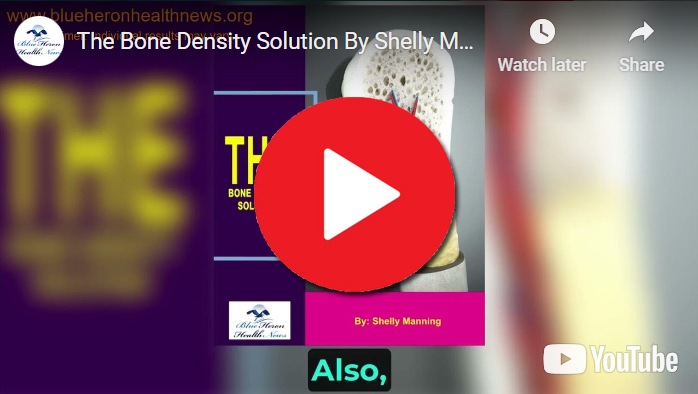
The Bone Density Solution by Shelly Manning As stated earlier, it is an eBook that discusses natural ways to help your osteoporosis. Once you develop this problem, you might find it difficult to lead a normal life due to the inflammation and pain in your body. The disease makes life difficult for many.
How can one find a specialist for bone health?
Finding a specialist for bone health involves several steps to ensure you receive comprehensive and effective care. Here is a detailed guide on how to find and choose the right specialist:
1. Understand the Types of Bone Health Specialists
a. Primary Care Provider (PCP):
- Role: Often the first point of contact for health concerns, including bone health.
- Referrals: Can refer you to appropriate specialists based on your condition.
b. Endocrinologist:
- Specialization: Focuses on hormonal imbalances affecting bone density, such as thyroid disorders, menopause, and diabetes.
- Conditions Treated: Osteoporosis, hyperparathyroidism, and other metabolic bone diseases.
c. Rheumatologist:
- Specialization: Deals with autoimmune and inflammatory conditions affecting bones and joints.
- Conditions Treated: Rheumatoid arthritis, lupus, and other connective tissue diseases.
d. Orthopedist (Orthopedic Surgeon):
- Specialization: Focuses on the musculoskeletal system, including bones, joints, and muscles.
- Conditions Treated: Fractures, bone deformities, and severe osteoporosis requiring surgical intervention.
e. Geriatrician:
- Specialization: Focuses on health care for older adults, including bone health issues related to aging.
- Conditions Treated: Osteoporosis, fall prevention, and age-related bone density loss.
f. Physical Therapist:
- Specialization: Provides exercises and therapies to strengthen bones and improve balance and mobility.
- Role: Helps in rehabilitation and prevention of fractures through targeted physical activity.
2. Start with Your Primary Care Provider (PCP)
a. Initial Consultation:
- Discuss Symptoms: Talk about any signs of bone density loss or risk factors, such as family history or chronic conditions.
- Medical History: Provide a comprehensive medical history, including medications and lifestyle factors.
b. Request Referrals:
- Specialist Recommendations: Ask your PCP for referrals to bone health specialists based on your specific needs.
3. Research Potential Specialists
a. Online Directories:
- Medical Association Websites: Use resources like the American Association of Clinical Endocrinologists (AACE) or the American College of Rheumatology (ACR) to find specialists.
- Hospital Websites: Many hospitals provide online directories of their specialists.
b. Insurance Provider:
- In-Network Specialists: Check with your health insurance provider for a list of covered specialists in your area.
- Coverage Details: Verify which specialists and services are covered under your plan.
c. Patient Reviews and Ratings:
- Online Reviews: Look at patient reviews on websites like Healthgrades, Zocdoc, or Vitals to gauge patient satisfaction and experiences.
- Recommendations: Seek recommendations from friends, family, or support groups who have had similar health issues.
4. Evaluate Credentials and Experience
a. Board Certification:
- Verification: Ensure the specialist is board-certified in their field, which indicates they have met specific professional standards.
- Credentials: Check their education, training, and certification through medical boards or professional organizations.
b. Experience:
- Specialization: Look for a specialist with extensive experience in treating bone health issues, particularly those related to your condition.
- Track Record: Inquire about their success rates and experience with treatments or surgeries relevant to your needs.
5. Schedule an Initial Consultation
a. Prepare for the Appointment:
- Medical Records: Bring all relevant medical records, including previous bone density scans, blood tests, and a list of medications.
- Questions: Prepare a list of questions about your condition, treatment options, and the specialist’s experience.
b. Evaluate the Specialist:
- Communication Style: Assess how well the specialist listens to your concerns and explains things in a way you understand.
- Comfort Level: Consider whether you feel comfortable and confident in their care.
6. Consider Second Opinions
a. Additional Perspectives:
- Comparison: Seek second opinions to compare diagnoses, treatment plans, and to ensure you are making the best decision for your health.
- Confidence: A second opinion can provide reassurance and confidence in your treatment plan.
7. Ongoing Care and Follow-Up
a. Regular Appointments:
- Monitoring: Schedule regular follow-up appointments to monitor your bone health and adjust treatments as needed.
- Consistency: Maintain a consistent care plan and follow the specialist’s recommendations.
b. Communication:
- Open Dialogue: Keep open communication with your specialist about any changes in symptoms or concerns.
- Updates: Inform your specialist of any new medications, treatments, or changes in your overall health.
8. Additional Resources
a. Support Groups:
- Community Support: Join support groups for individuals with similar bone health issues for shared experiences and advice.
- Education: Many groups offer educational resources and updates on the latest treatments and research.
b. Educational Materials:
- Research: Stay informed about your condition through reputable sources like medical journals, books, and reliable health websites.
- Workshops and Seminars: Attend workshops and seminars offered by healthcare organizations for additional learning and support.
Summary
Finding the right specialist for bone health involves starting with your primary care provider, conducting thorough research, evaluating credentials, and scheduling consultations. It is important to consider patient reviews, seek second opinions, and maintain regular follow-up appointments to ensure comprehensive care. Utilizing additional resources such as support groups and educational materials can further enhance your understanding and management of bone health.
The Bone Density Solution by Shelly Manning As stated earlier, it is an eBook that discusses natural ways to help your osteoporosis. Once you develop this problem, you might find it difficult to lead a normal life due to the inflammation and pain in your body. The disease makes life difficult for many.
